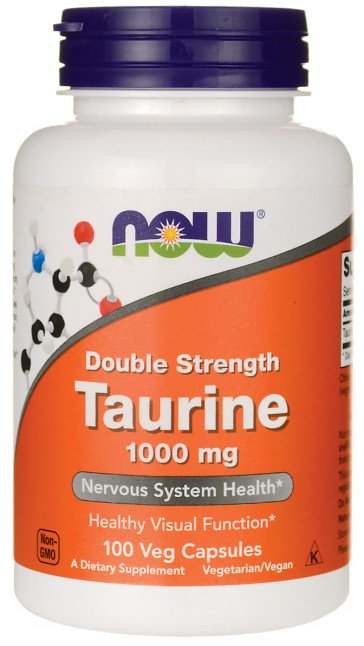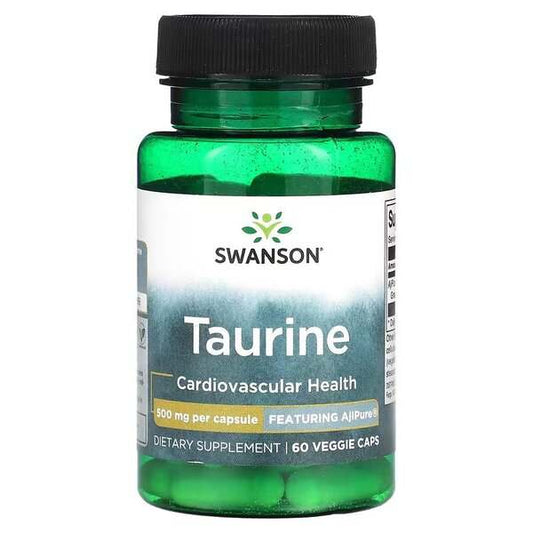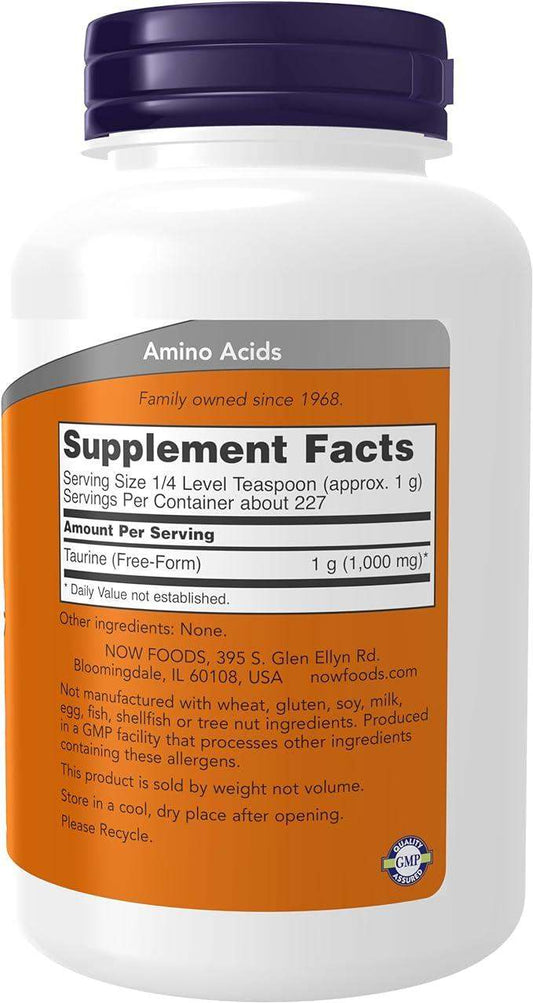Taurine is an essential amino acid that plays a significant role in numerous bodily functions, including maintaining cardiovascular health, supporting electrolyte balance, and enhancing athletic performance. Known for its antioxidant properties, Taurine helps protect cells from oxidative stress, supports energy production, and promotes healthy metabolism. It is particularly popular among athletes and those looking to boost their physical and mental performance.
At Welzo, our Taurine Supplements Collection features a wide range of high-quality products designed to help you harness the benefits of this powerful amino acid. Whether you’re looking to improve your exercise endurance, support heart health, or enhance your overall vitality, our collection includes Taurine supplements in various forms, including capsules, tablets, and powders, ensuring that you can easily integrate this essential nutrient into your daily routine.
Each product in our collection is carefully formulated to deliver maximum potency and effectiveness, making it easier for you to achieve your health and wellness goals. Explore the benefits of Taurine and boost your energy and vitality with Welzo’s trusted supplements. Shop our Taurine Supplements Collection today to find the perfect addition to your health regimen.





























 Rated Excellent by 26,523+ Reviews
Rated Excellent by 26,523+ Reviews